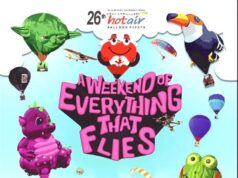In an interview with Punto, Ubial said that the DOH has been conducting nationwide surveillance of JE since 2015 and that the results of the surveillance are due this year. This would determine whether the government would pursue JE immunizations in areas found to be vulnerable, she said.
Four victims of JE were reported to have died this year in Pampanga. The latest was a six-year-old child who died at the Jose B. Lingad Hospital which is the lone sentinel hospital for JE cases in Central Luzon, as designated by the Regional Institute for Tropical Medicine (RITM) in Mandaluyong City.
Ubial said that one supplier of JE vaccines charge $100 to $200 for the prescribed two dosages so the DOH has coordinated with four other suppliers whose cost could be less. She said, however, that should the JE surveillance warrant vaccine purchases, a bidding would be held.
The RITM said 32 cases of JE have been confi rmed in Pampanga, out of 259 suspected cases reported since July in this province.
In its website, the World Health Organization noted that in 2016, a total of 22 of 24 countries, including the Philippines, with JE virus transmission risk conducted JE surveillance, an increase from 18 countries in 2012.
While the Philippines has yet to decide on whether to pursue JE immunization, the WHO noted that 12 countries already have JE immunization programs.
The Japanese encephalitis vaccine first became available in the 1930’s and is on the World Health Organization’s List of Essential Medicines.
Like dengue fever, JE is also transmitted by mosquitoes, but of different kinds. Aedes egypti mosquitoes carry dengue virus, while culex mosquitoes transmit JE virus.
Dr. Jessie Fantone, chief epidemiologist of the DOH in Central Luzon, said that symptoms are similar in both dengue and JE cases.
He said, however, that while patients of dengue who get cured go back to normal life, JE survivors are usually left with lasting symptoms similar to those who survived stroke because JE affects the brain. He said the same preventive measures against the spread of dengue cases apply to JE, particularly the removal of water accumulation where mosquito carriers deposit their eggs.
The WHO noted that JE virus “is the most important vaccine- preventable cause of encephalitis in the Asia-Pacific region. “
It has recommended the “integration of JE vaccination into national immunization schedules in all areas where the disease is a public health priority.”
The WHO has reported that more than 3 billion persons live in 24 countries that have JE virus transmission risk areas and that the majority or 75 percent of JE cases occur in children aged 15 years and below.
It also noted that although most JE cases are asymptomatic, the case fatality rate among patients with encephalitis is almost 30 percent. It also noted that about 30 to 50 percent of survivors have long-term “neurologic sequelae.”




